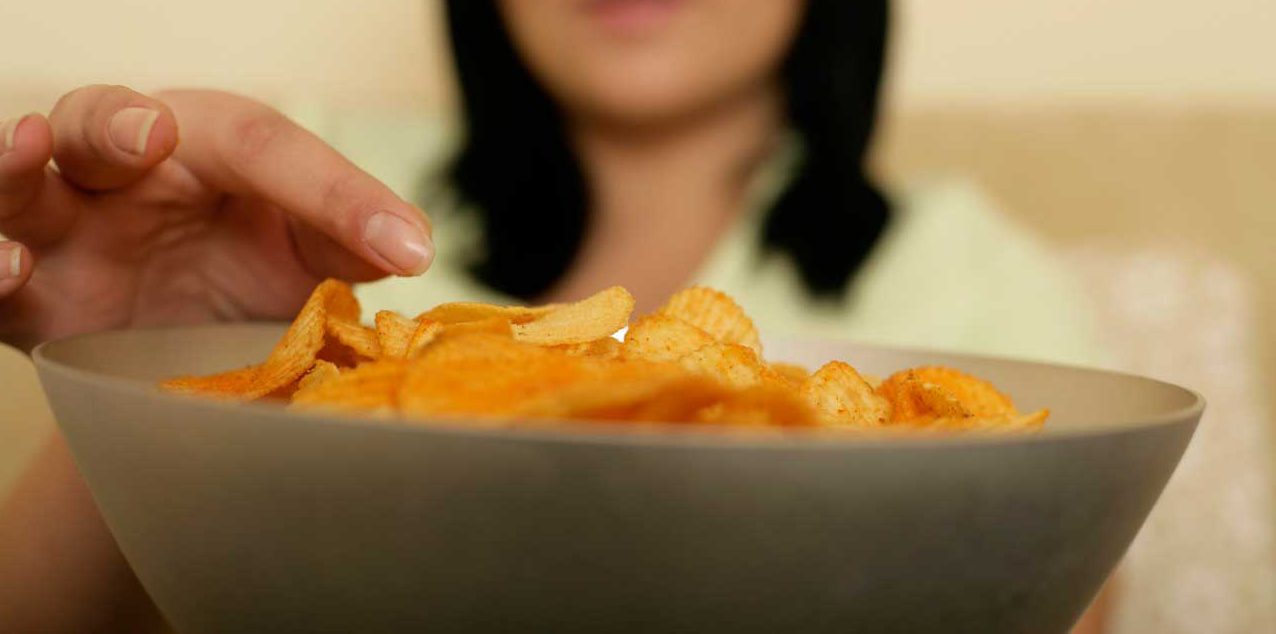Avoid Processed Carbs — Yes, that Means Chips

In an era of conflicting diets, a simple message emerges.
You can get lots of conflicting advice flipping pages in diet books, or in party conversation. Fans of protein will eat the cheese but not the crackers; fat-avoiders will drink the diet soda but not the egg-nog; some people will urge you to fast, and others to eat tiny meals all day long.
Food affects people differently, depending on their genes, past health, and other factors. Savvy eaters know which foods give them indigestion. Savvy dieters have made useful observations about what helps them lose weight, though few keep it off for long. You may already know that certain foods are diet-busters for you.
That said, one simple rule applies to almost everyone, writes David S. Ludwig, author of the forthcoming book “Always Hungry? Conquer Cravings, Retrain Your Fat Cells and Lose Weight Permanently.”
Eat fewer processed carbs.
YOU MIGHT ALSO LIKE: What the New Dietary Guidelines Mean for You
In a clinical trial comparing the Atkins (high- protein/high-fat, low carb), Ornish (low-fat), Weight Watchers (portion control), and Zone (low-carb, five meals a day) diets, no diet emerged as clearly superior. Within each group, however, the researchers saw big differences: after a year some people had lost 35 pounds and others had gained 10 or more.
Why might that be? It’s harder to diet if you tend to get high insulin spikes after eating. To assess yourself, ask for an “insulin-30” level test, in which you’ll drink a bottle of glucose and your insulin level is measured a half hour later. Ludwig and co-author Cara Ebbeling have concluded that people with high “insulin-30” results lose more muscle and less fat on a standard low-calorie diet. Their metabolisms slow down the most as they lose weight, which makes them more likely to regain. The solution: eat fewer carbs. After a month on a low-carb approach, they can eat carbs without experiencing as big a drop in metabolism, though the effect may not last.
In a 2007 study, the team found that over a year and a half, obese high “insulin-30” people lost 10 pounds more if they adopted a low “glycemic load” diet — cutting back on simple carbohydrates — than on a low-fat diet. People who didn’t get insulin spikes lost the same amount of weight, whether they cut out fat or carbs.
In another approach, Israeli researchers continuously monitored the blood sugar of 800 adults and crunched the data to assess an individual’s blood sugar response to specific foods. High blood sugar after eating is one strong sign that you may be at risk of type 2 diabetes or heart disease. One day, they concluded, a test may inform you of your unique diet-busters.
However, if you want to control your post-meal blood sugar now, the easy current answer is to eat fewer processed carbs, Ludwig and others note. Once you cut out the packaged bread, potato chips, cookies, cake, and candy, you can get into the details of whether you need to get even stricter and never eat a baked potato.
What if you are in the happy camp that has an easier time dieting, and you’d rather cut out steak than bread? There’s a growing body of evidence that some fats are good for you, so go ahead and cut out steak but make sure you eat salmon and nuts.
Updated:
April 09, 2020
Reviewed By:
Janet O’Dell, RN